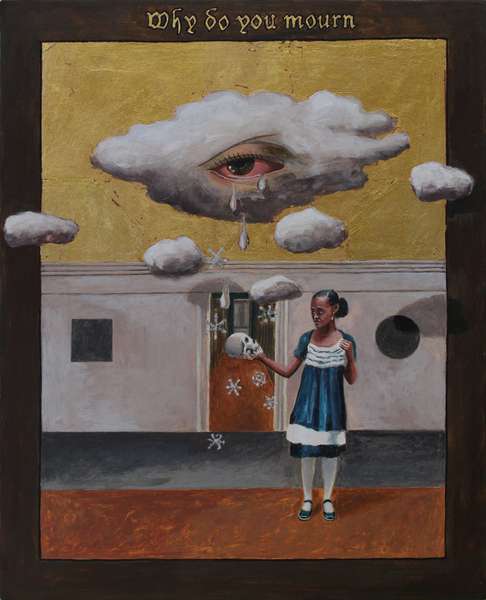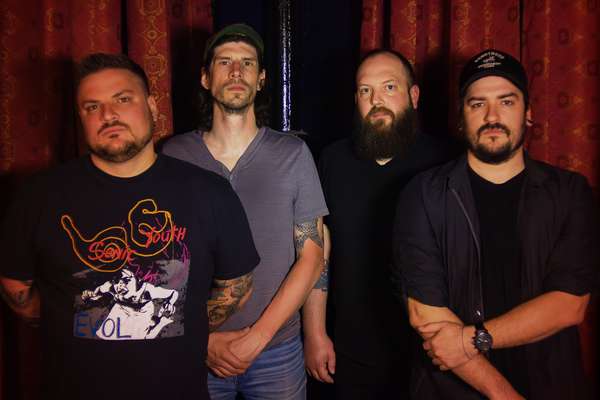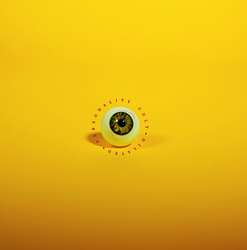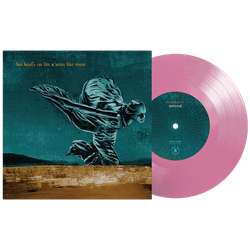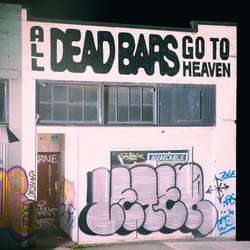The End is assembled by stellar musicians of the Swedish and Norwegian avant-garde jazz scene, amongst them the likes of Mats Gustafsson and Sofia Jernberg. Their moment of origin with Svårmod Och Vemod Är Värdesinnen, found this collective relishing their all too familiar chaos. Crazed saxophone solos and frenetic rhythmic changes collapsed any notion of structure. At the center of it all, Jernberg’s vocal delivery is a true revelation. Shifting through various styles, Jernberg is able to deliver moments ranging from intense anguish and torture, all the way to serene beauty and, dare I say, peace. The follow-up with Allt Är Intet carried on the same motif, although there was something more controlled about its delivery. This is a theme that now carries on to Why Do You Mourn, The End’s debut for Trost, alongside a few interesting twists.
The End is a volatile and unstable entity. It is something that defines their core identity, and through Why Do You Mourn, this quality can be found in the most unlikely of places. The laid-back introduction to “Snow” is such an intense moment, a mean streak lurking beneath the relaxed tone. It is the early promise, which eventually blooms into an absolute racket. The steady build-up is meticulous, letting in the frenetic energy take its full form. “Whose Face” follows a similar trajectory, the disorder steadily snowballing until an overload of confusion and mayhem is brought down.
But, this time around, The End dives deeper into their previously visited territories. There have been moments of introspection, and more meditative approaches in the past, but Why Do You Mourn opens up further towards these dimensions. The minimal instrumentation in the second half of “Snow” sees a folk-ish quality come to the front. It leads to something much more fragile than what The End usually presents, and it is further explored through an Americana lens in “Winter Doesn’t End.” This is just the first leap, as The End then proceed towards a heavy doom rendition with “Doomfunk Mcs,” the saxophone’s weight crushing down. In this mode, they even find a piece of catharsis with the sentimental “Whose Face,” with Jernberg’s vocals delivering a heartbreaking rendition.
Layers and cycles continue to unveil for The End. Injecting a drone element to “Doomfunk Mcs” they open up an ambient dimension. It all comes crashing down with the brilliance of the closing track “Black Vivaldi Sonata.” This is where The End truly transform, finding a no-wave space in between styles. Suddenly, the grip and control are surrendered, and the volatile essence gives way to a strangely romantic setting. As the track progresses it begins to resemble some otherworldly gospel track, once more Jernberg flexing the boundlessness of her voice. It is a stunning metamorphosis, revealing an act that does not wish to be confined. Sure, the free jazz and avant-garde notions are in their blood, but they still do not let these aspects mindlessly guide them. And this is the sign of a great creative act.
